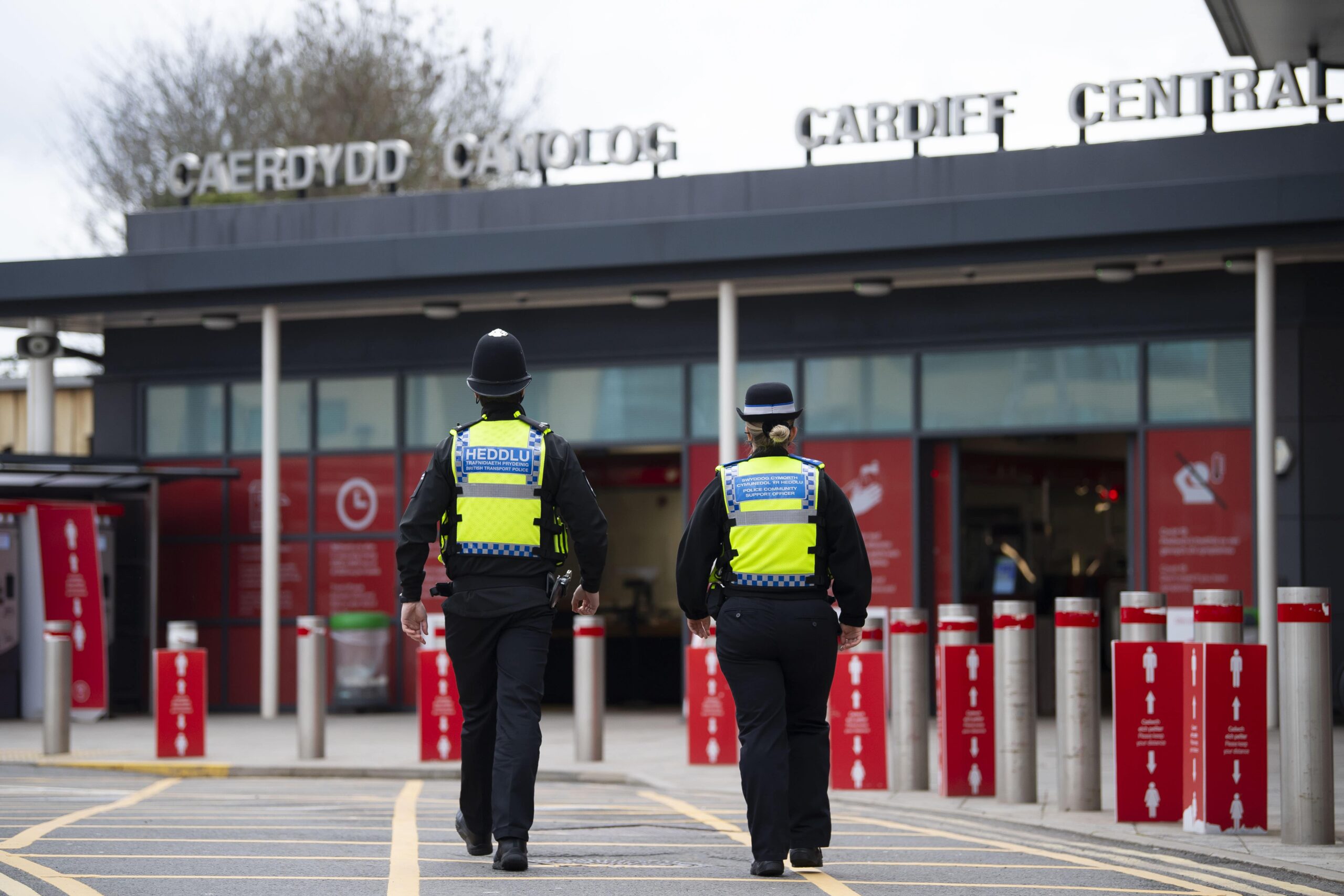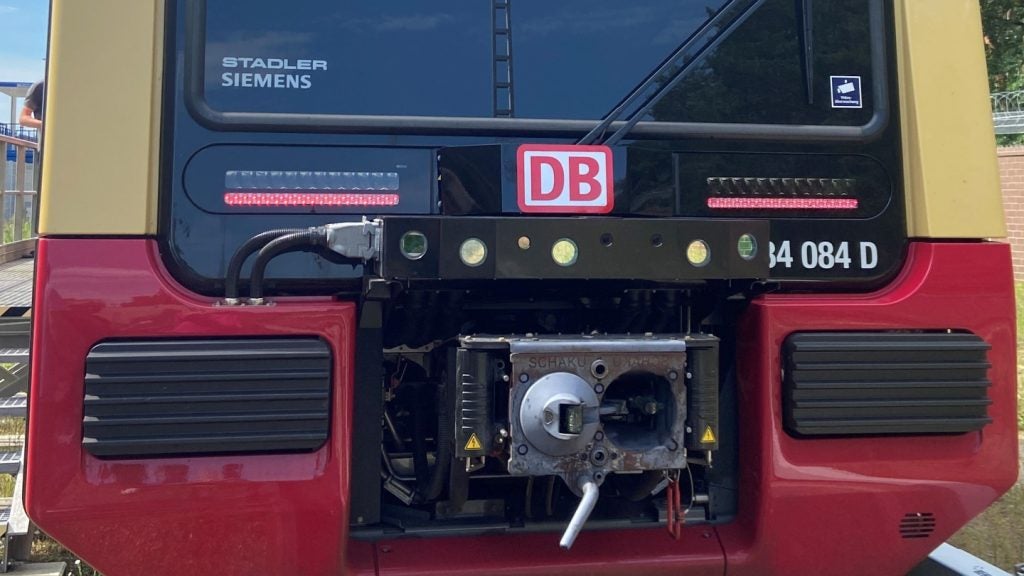
According to a report from the Welsh Government, crime on trains and in railway stations in Wales has increased by 60% over the past year. Crime types include instances of crime against other passengers and staff, weapon crime, and drug crime.
Data shows that serious public order was the most frequently committed offence over the last 12 months, with a total of 605 crimes recorded. A further 560 reports of violence crimes were recorded, with 239 thefts of passenger property and 224 criminal damage offences.
Although these figures may seem high, portraying a potentially unsafe environment for passengers and staff, the figures reflect a more proactive response from the British Transport Police (BTP) who have been vigilant in apprehending individuals carrying out these crimes.
We speak to British Transport Police Superintendent, Andy Morgan, to find out more about these figures as well as the importance of using the 61016 BTP number.

How well do you really know your competitors?
Access the most comprehensive Company Profiles on the market, powered by GlobalData. Save hours of research. Gain competitive edge.

Thank you!
Your download email will arrive shortly
Not ready to buy yet? Download a free sample
We are confident about the unique quality of our Company Profiles. However, we want you to make the most beneficial decision for your business, so we offer a free sample that you can download by submitting the below form
By GlobalDataFrankie Youd (FY): Could you tell me about your role and what it entails?
Andy Morgan (AM): I’ve been in policing now for 37 years, I have been with BTP for eight years, I was with South Wales Police prior to that. I came across the BTP in 2013 because of this role, there was a new post supported by the BTP Authority for a superintendent covering Wales and the borders, creating a new subdivision. I took the opportunity to apply for it, I was successful and here I am.
It was an opportunity for me to go beyond my years of service and extend my time in policing, something I’ve always wanted to do and thoroughly enjoy doing, and I didn’t have any ambitions at all to hang up my truncheon – this gave me that perfect opportunity and come to come to what is a unique job.
The Welsh Government have reported a 60% increase in crime this year, could you explain these figures?
If you look at the numbers themselves from where we were and where we are now, we are one of, if not the safest area across the whole United Kingdom in terms of crime figures. All this data that you see in front of you is alarming. That it’s a 60% increase and no doubt that’s an eye-catching figure, but let’s unpack the exact numbers there.
All of these are proactive figures. The public should feel even safer at the fact that this is through positive, robust ,proactive policing that has captured these offences and the offenders as well – these are not undetected crimes.
If we find someone who is in possession of drugs, invariably we’ll find them with large sums of money, or offensive weapons, so we’ve got a three-way hit on one person we arrest. But those would be recorded as three separate crimes, even though there is maybe one offender.
I think this is positive, and the positivity comes from several steps that we’ve taken throughout the pandemic, where because of lower passenger footfall we have had the opportunity to be smarter with the resources that we’ve got and be in the right places at the right time. We have worked on intelligence and with our counterparts across the home office forces, particularly the Welsh forces and West Mercia police.
We also have our own county lines task force team. They were only set up last year so there’s another tell-tale sign as to why these figures might be on the increase. These figures are up because we’ve been very, very busy with a lot of proactive operations with counterparts from the other forces.

What is being done to ensure passenger and staff safety?
There are several measures that we have. Firstly, the county lines operations and the county task forces taught us to be even smarter on our intelligence sharing that we’ve got with home office forces. We share not just information on drug offenders that might be using the rail network but all manner of offenders.
We have got great intelligence and information sharing between the forces, so we know who may be using the rail network from people that might be on bail for serious offences, we’re aware of prisoner releases, all those kinds of individuals, so we’ve got an awareness of who might be on the network at certain times. We’ve been doing that now for over four, maybe five years.
We are making sure that we share some of the tactics, methods, and concerns that we have with the rail staff that are on the network. There are 247 railway stations across Wales and the borders, not all of those are staffed, not all of those has a representative from BTP, but on every single train that operates, there’s at least one if not two members of rail staff.
What we’ve tried to do with Transport for Wales is to share with them a lot of the briefing around what to look for, the signs, the indications, or perhaps when somebody might be a little bit vulnerable a little bit worried a little bit nervous.
Do you have any examples of where this training has been applied?
We had one young person who was sat on a platform alone in Wales, a member of the dispatch team texted our 61016 number. They didn’t know what was wrong, they didn’t want anybody to get in trouble, they didn’t want to approach the individual, they just wondered if BTP were around and if they could have a word with this young man because there was something not right.
It turns out that young man had been effectively kidnapped from London, been brought to Wales by an organised crime group to break into houses and traffic drugs within Wales. So, because of that simple text, we were able to rescue that individual from the horrible life that he was now in, and we were also able to unpick that organised crime group with our colleagues.
Even though it started long ago with what happened to the boy, the start point for police intervention was a simple text message from the member of rail transport staff who simply said: “I don’t know what is wrong, but it doesn’t feel right, please help.”

Do you think that the pandemic has caused an increase in crime on the railways?
Today we’re seeing a far less tolerant society, we’re seeing a far less patient society. That is a compounding fact around some of the stats that are seen in this report regarding the acts of aggression that are taking place against rail staff, particularly Transport for Wales staff.
Because of the concerns and the understandable nervousness, with rail staff not walking through trains and checking tickets as they once did, some people now seem to think across the UK, let alone Wales, that it’s a free network and that it’s free travel. Suddenly, we’re getting back to some degree of normality and those revenue checks are back in place. There’s that response of: “I have had free travel for 14 months; what do you mean I’ve got to buy a ticket?” Then they’re taking that out on rail staff.
The pandemic has caused certain changes within people’s mindsets, we have a big part to play supporting Transport for Wales, the rail companies, and the revenue teams, and just reminding people of the criminality involved here – not just in terms of that aggression and their violence – but also the fact that if they’re deliberately avoiding payment and that’s a crime of fraud.
How can the industry become involved with making the railways even safer?
We’ve had our text service now for quite some time, but I think it’s taken a little bit of time, particularly for rail staff to get confidence in that system and have belief in it. I think everybody’s got an example where we call the police, nothing happened, or the police came and they did nothing. I think when we get these positive outcomes – where the start point is that message from a member of staff – that gives them confidence to believe in the system.
Rail staff are our eyes and ears out there. Whilst I know that the text number has been mainly geared towards preventing acts of terrorism, it can be used for anything by any member of staff out there, any engineering teams working alongside the track, any members of staff on the trains, or drivers who can send a quick text when perhaps stopped at the station to let us know about a trespasser.
The added benefit to the text message system is that we all look at people when we’re on trains and they’ve all got their phones in their faces, so it’ll be nothing untoward for a member of rail staff or a member of the public to be sat there with a phone in hand sending a text. If you dial 999 while on the train and your voice is heard asking for the police, then that immediately brings attention to what you’re doing. A text is discreet, it’s safer, and hopefully people will feel more confident in using that.






